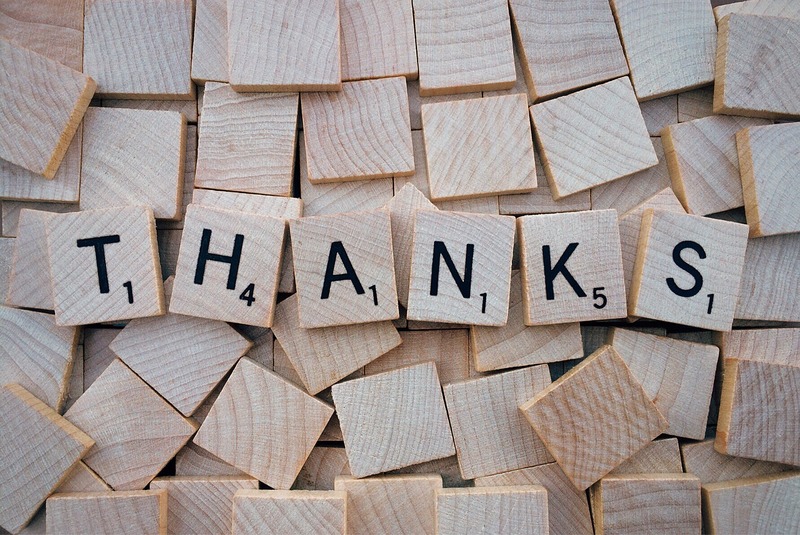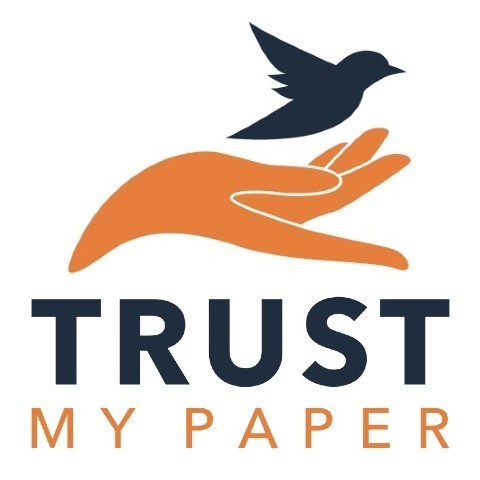Saying Thank You – Formal and Informal Ways to Say It
In some cultures, saying “please” and “thank you” is something that everyone does daily. You don’t have to wait for a special occasion to express your gratitude. Moreover, being polite and letting people know that you appreciate what they do for you will improve your relationships.
Learning to say “thank you” and giving a response to “thank you” will help you to have a better interaction with your significant one, family, friends, teachers, professors, instructors, employers, colleagues, etc. Still, you should know that you have to respect some rules in specific situations, like keeping it formal or informal. There are also ways to make ‘thank you’ more meaningful and sincere. Remember that the words are very easy to say, but it takes effort to make them have an impact.

Thank you for helping me
This phrase can be used almost in any situation to show your gratitude. If someone helped you with your groceries, completing a project, or was there for you in your time of need, you could say “thank you for helping me”. No matter how big their help was, it was still important for you. Even though this sentence can be used in a few formal situations as well, it is rather informal.
Pay attention to your daily interactions. Are you saying thank you the way you should be? Sometimes people who help others throughout the day rarely ever here ‘thanks’. Never fall into the trap of believing thanks are not needed when someone is doing their job. Finally, take a look at your loved ones. Are you showing them gratitude or taking them for granted?
Thank you for your assistance
We’re still talking about help, but this time, we use the word “assistance”. In formal situations, such as a discussion with your supervisor, you might stick with this expression. Of course, that depends on your working relationship. If you work in a casual environment, something this formal might sound weird and stilted.
I really appreciate your help
This way of thanking someone does not include the keyword “thank you”. However, it still shows your gratitude, and it is more personal. Generally speaking, “really” is used to emphasize something only in colloquial language and is not recommended using it in formal speaking or writing. Without this world, the sentence is also suitable for plenty of formal situations. In fact, it becomes more official than “thank you for helping me”.
You can also show your gratitude by being specific. This shows a sense of situational awareness. For example, if you say, ‘I know that you are very busy, and I truly appreciate your time.’ that indicates that you are aware that your request may be disruptive. People feel much less put out if others at least show they understand and appreciate them going out of their way.
Thank you for your cooperation
This is clearly not something you would say to your family on a daily basis, right? Still, at work or in other professional or business environments, this way of saying “thank you” is excellent. In most cases, you can say this right after you asked someone to help you, and the person accepted, even though he or she will do something for you later, not now.
People also use “Thanks for your cooperation,” but this is rather informal, and you should use this sentence in proper situations. If you must stick to a formal tone, always opt for “thank you” instead of “thanks.”
Thank you for your quick response
If you apply for a job, write an e-mail to the HR department, send a proposal for a research paper or any other formal situation that implies a response, and you get one quickly, you should use this sentence. Other ways of expressing your gratitude are saying “thank you for your prompt response” or “thank you for getting back to me”, but the last one is less formal.
Why is this so important? First, ‘prompt response’ meaning that the person most likely shifted priorities and stopped what they were doing to assist you. That’s absolutely worth a few moments to say or write, ‘thank you for your prompt response.’
There’s another instance where you should use ‘I appreciate your response.’ Sometimes, things simply don’t work out. Maybe the response wasn’t what you had hoped it would be. If that’s the case, you should still offer a word of thanks as a courtesy.
Thank you for your reply

When you asked for some information or wrote to a familiar person and got a response, “thank you/thanks for your reply” is something you should mention. This shows respect, and it may suit both formal and informal situations. In fact, even when you receive a negative answer and you’re not happy with the content of the reply, you are advised to use this phrase for the sake of common sense.
Thanks for your attention
This way of saying thank you is also formal and should be utilized especially after presenting a report or review at work or a product or service to someone. If you schedule a meeting with one of your superiors, you should also say “thank you for your attention” or “thank you for your time.” It would be great to start your speech or the discussion with the last phrase and end it with the first one mentioned.
Thanking Someone in Advance
There’s nothing wrong with a bit of preemptive politeness that also packs a bit of authority. When you say thanks in advance or thank you for your attention to this matter, you are setting the expectation that your request will be granted. You might say this because you simply have faith in the other person’s good nature, because you are an authority figure to them, or it is simply reasonable for you to expect that they will help you out.
Now the sticky part. Never assume that ‘Thanks in advance’ is an adequate substitute for the sincere ‘Thanks for the information’, or any other expression of appreciation. You still owe that word of thanks once the favor is granted or assistance provided.
How to respond to thank you?
The classic phrase “you’re (or you are — for more formal situations) welcome” remains the most accurate response you can give. In fact, many people still consider that this is the best reply for “thank you.” But other used answers are “no problem” or “no worries.” These sound great, especially in colloquial language, and they don’t transmit the idea that you’ve done a favor to someone, like “you’re welcome” does.
Should you always answer to thank you?
Somebody says thank you to you. Is it always appropriate to respond? In person, the answer is always yes. It’s a quick, easy, and polite gesture. Simply say ‘you’re welcome,’ or use one of the responses mentioned above.
But, there may be instances where thank you should be the end of the exchange. For example, there may be some instances where thank you is an effective conversation ender. Responding with ‘you’re welcome’ could make things awkward. Here's an example of that:
You apply for a job, and receive a written notice that you’ve been rejected. The rejection notice or email ends with, ‘Thank you for contacting me, I appreciate your time.’ Assuming that you aren’t interested in feedback and you don’t have additional questions, why not let the conversation die as it is. In this case, any kind of you’re welcome statement just feels phony and forced.
You are also better off ignoring a sarcastically delivered ‘thank you’ in many cases. Take the same approach for other conflicts too.
Important! How to Appreciate Someone
There’s really no downside to saying thank you, but there are some things you can do to really make your appreciation meaningful. Here are some actions to take that show appreciation rather than simply saying it:
-
Leave a glowing review online.
-
Tell the person’s boss or supervisor they did a fabulous job by copying them in a “Thank You” email for help.
-
Give a nice tip or bonus.
-
Send a meaningful gift.
-
Offer a referral or recommendation.
-
Send a detailed note or email explaining what the person did and how it had a positive impact on your day/experience/life.
Just be sure to follow the rules of etiquette. Ensure that any gift or favor you provide as a show of gratitude doesn’t create a conflict of interest or hint of impropriety.



